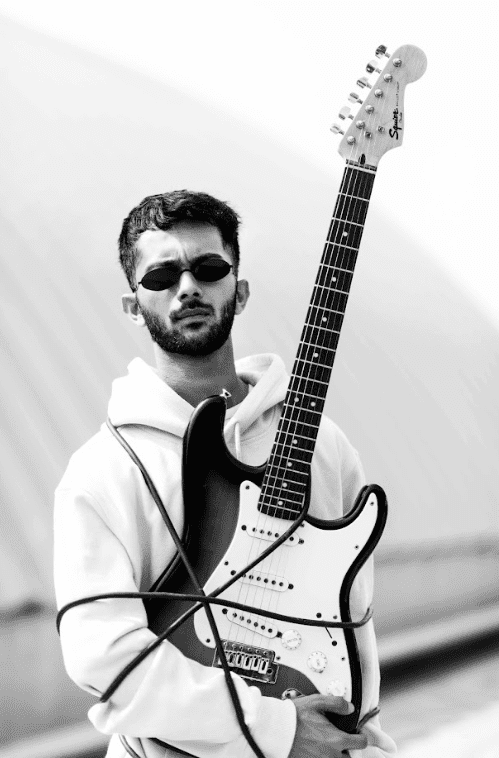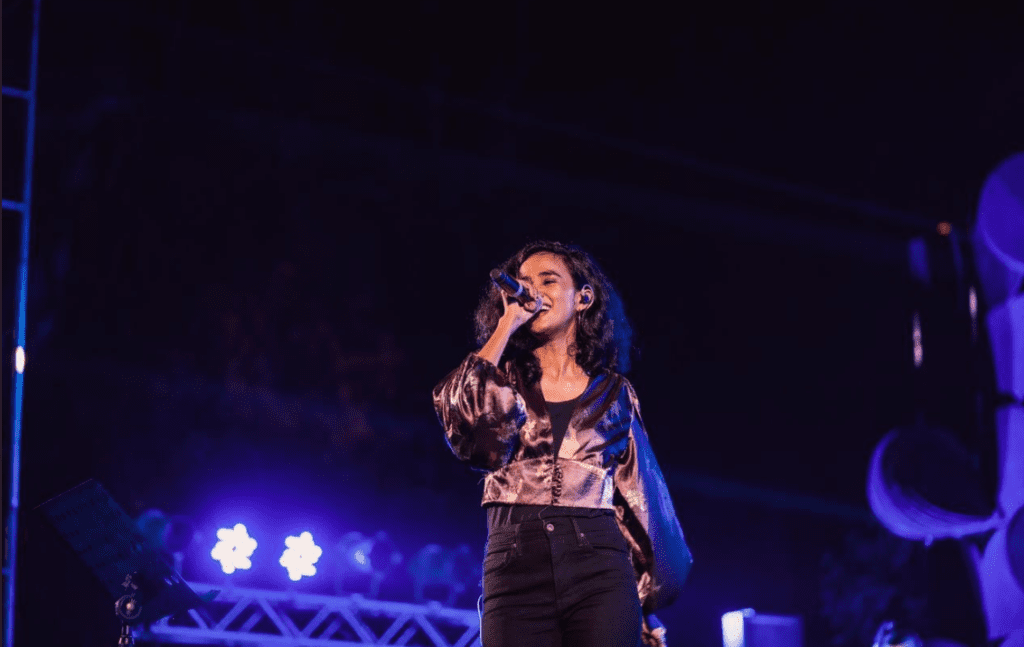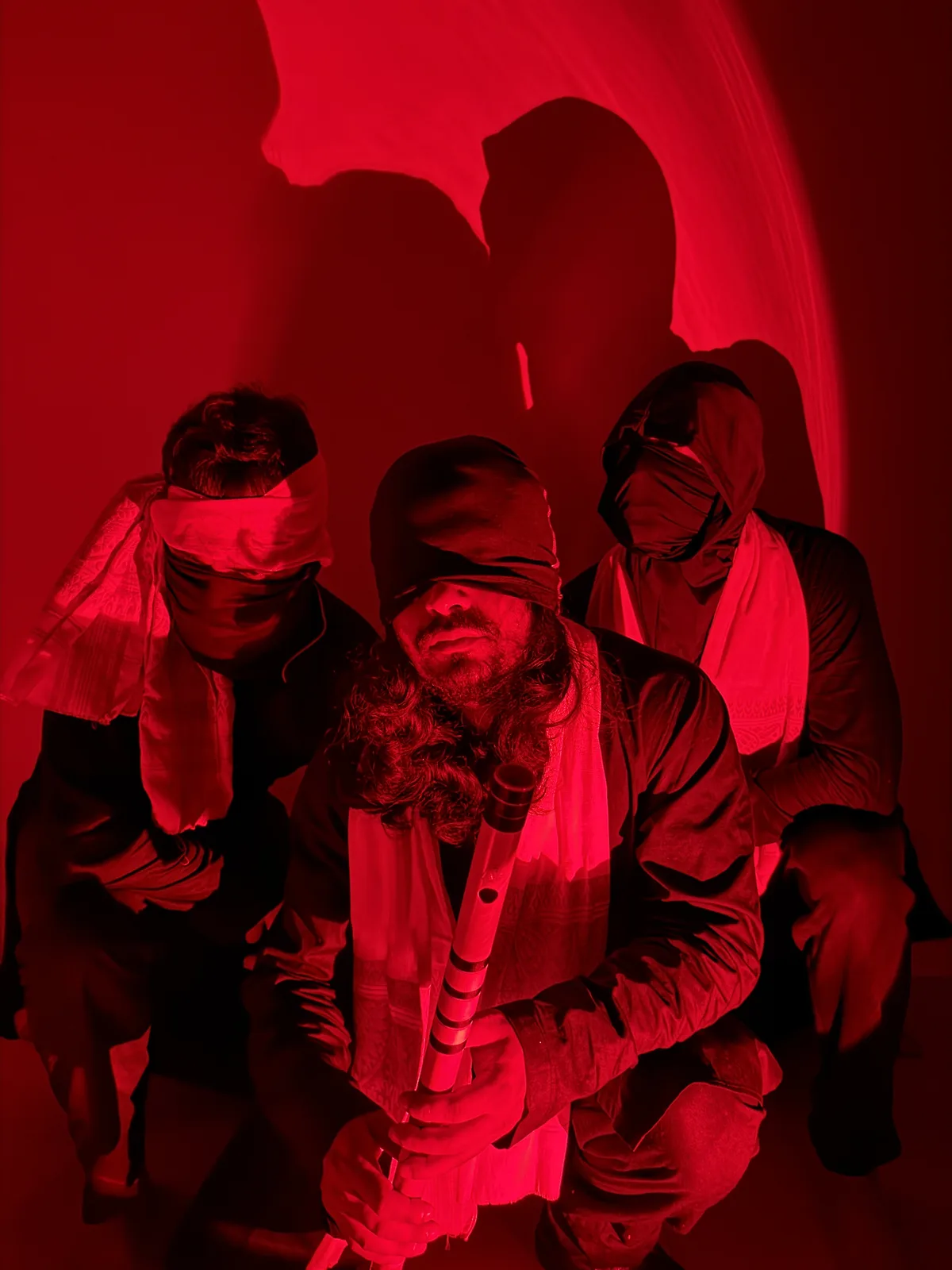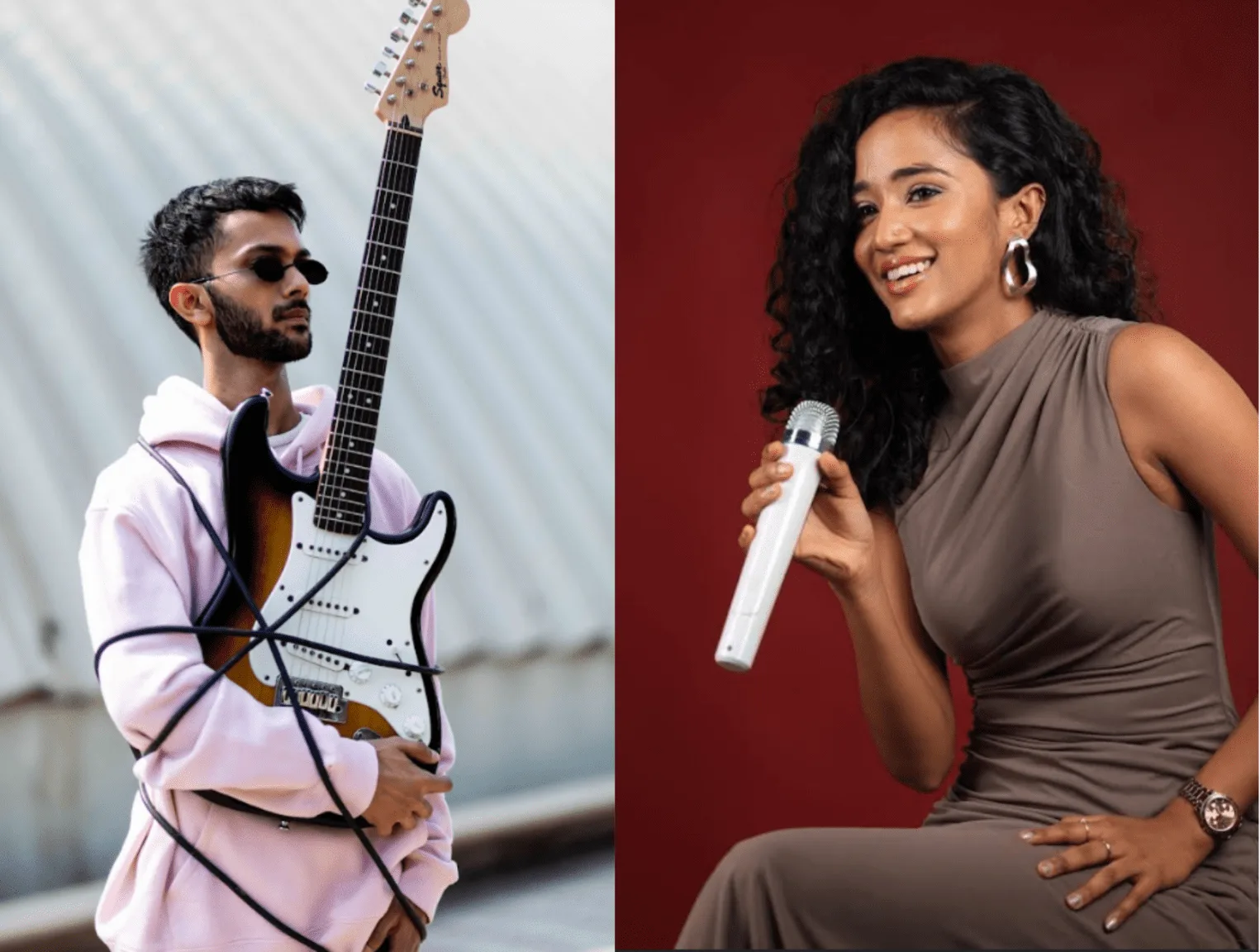Shrey is a 28-year-old Mumbai-based musician rooted in RnB, Soul, and Pop. Self-taught in Western music after early Indian Classical training, he’s a music marketer by day. Shrey won the India Karaoke World Championships in 2018 and released “Nachle” with Vidya Vox in 2021. He is currently a resident singer at the National Centre for Performing Arts, with other releases including “Whisper,” “SABAR,” and “No Looking Back.”
Zeba Tommy is a Mumbai-based vocalist from South India, celebrated for her versatility across genres. A Trinity College of Music alumnus (Classical Western, Carnatic, Western Rock n Pop, Classical), she’s a prominent playback singer in multiple languages, lending her voice to films like “Garudan,” “Philip’s,” and “Irul.” Zeba recently made her Bollywood debut in Netflix’s “Heeramandi” and has sung for renowned music directors and major brands. She is currently working on her original music compositions.
Both these artists recently came together to release their single ‘Daydream, which was spotlighted on TuneCore’s ‘Next,’ a flagship artist spotlight property by the global music distribution and artist development platform, TuneCore. Built for India, ‘Next’ spotlights independent artists from across the region who are at an inflection point in culture. In conversation with us, he talks to us about his journey so far.
1) Tell us a bit about you. How did you begin your journey as a singer/songwriter?
Shrey: I’ve been singing for as long as I can remember. I grew up in Surat, Gujarat, and my earliest memories are of singing in church. I even took a few Hindustani classical lessons as a child, but I was always more drawn to Western music. I grew up listening to gospel bands, Pink Floyd, Queen, Elton John, Aretha Franklin, and Donnie Hathaway. I was also obsessed with pop music artists like Amy Winehouse, Sam Smith, James Blunt, Enrique Iglesias, they really shaped my early taste vocally.
It was after I moved to Bombay for college that I started writing my own music. A friend of mine encouraged me to write and share my own songs with the world, and that’s when everything changed. I released my first single in 2019 and have been writing and releasing music since. I’ve never seen myself as someone who needs to churn out songs constantly, I take my own sweet time with my music, and I like it that way.
Zeba: I’ve been singing ever since I was a little kid. Music is all I’ve ever known, so it was a no-brainer in my family that I would follow it as a career. I am grateful to have extremely supportive parents who guided me through the same. English is a subject which was also my strong suit, and I followed it into my further studies as well, as I graduated in English Lit. Thus, the two and two came together, and I’ve been dabbling in songwriting for the last many years. It took me a while to gather the courage to put my music out into the world, and I finally took that step with my first original release ‘little white door’.

2) Which bands/artists were your first love? Who is your biggest influence?
Shrey: I’ve always gravitated towards singers first, more than bands or musicians. Freddie Mercury is by far my biggest influence from his vocal technique to his stage presence and his larger-than-life personality, I’ve drawn so much inspiration from him. I also adore Elton John and Stevie Wonder. Among modern artists, Amy Winehouse and Sam Smith have been massive influences on me. I feel like I’ve borrowed little pieces from all these people in the way I sing and write.
Zeba: I started mostly listening to Indian film music as a result of my dad being an avid music lover. Western music came to me around my teenage years, and I started picking it up on my own. In terms of influence, little zeba was the biggest fan of Shreya Ghoshal. As she grew up, and started expaning her listening, vocalist-artists attracted my ears. Thus, Whitney Houston, Adele, Celine, etc became my go-tos.
3) Tell us a bit about your latest single ‘Daydream.’
Shrey: ‘Daydream’ is a song we really took our time with. It’s rich with instrumentation, layered harmonies, intricate vocal runs, there’s a lot of vocal play throughout. The song tells the story of two people falling for each other but holding back because of the emotional baggage from their past relationships. It’s a duet where both people are asking each other to open up, because they constantly find themselves daydreaming about the other. On the surface, it feels like a quintessential love song, but when you really listen, you’ll find it’s very nuanced and deeply layered.
Zeba: Daydream came out of a place of emotional turmoil, and was intended to be pure, straightforward, but emotionally weighted. I remember sitting down to write, and got the first verse and chorus down. Thats when it hit me, that I should make this a duet and finish the lyric up in a conversational manner. Shrey was the first person who came to mind, and I hit him up, and we finished up the song together.
4) How was it working with Zeba/Shrey?
Shrey: Working with Zeba has been an absolute blast. She’s a powerhouse vocalist and a good friend. We’ve been doing covers together for years and always wanted to collaborate on an original, but life kept getting in the way. ‘Daydream’ felt like the perfect opportunity, it just clicked. Zeba is an incredibly well-trained singer, and I’ve learned so much from working with her. It’s been such an exciting project for both of us.
Zeba: Shrey and I share a lotta similar music and vocal influences. Thus, when we sat down to create together, we were very aligned in out thoughts and intentions. We moved in the same direction, and our voices blended very beautifully I feel!
5) What is your music-making and recording process like?
Shrey: I don’t have a set process when it comes to making music. Sometimes it starts with a random melody that pops into my head, and I build words around it. Other times, I write when I’m overwhelmed by a particular emotion. I usually sit at my piano and see where it takes me. Honestly, I just let my gut lead the way, I don’t overthink it. I allow the music to evolve naturally. But yes I do think of how my voice can take the front seat in a composition and drive the song v/s other components.
Zeba: A pianist and producer friend of mine, Crehyl Pereira, happened to hear a draft of daydream. He loved it and got on board to finish the track. He ended up producing it, and got amazing musicians to play on it. The whole process was very informative and refreshing for me, and I had fun through it all!

6) Why do you make music? What drives you as a musician and what are your songs about?
Shrey: Music is what keeps me sane in this crazy world where sometimes everything seems to be falling apart. I think there’s something so beautiful about creating an original song and realizing that it can reach someone you’ve never met and bring them comfort, joy, or simply the feeling of being understood. That human connection, without even knowing each other is incredibly powerful. What drives me is also the diversity of sounds that still need to be heard in India. The indie scene is often boxed into stereotypes, but I want artists like Zeba and me to be examples for younger musicians, showing them that it’s okay to create music that’s honest, even if it doesn’t fit the popular mold. My songs cover everything from love and heartbreak to self-reflection and even abstract ideas.
Zeba: Music is what I know, feel, and do the best. As cliche as it sounds, it is the best way I know how to express myself. When I’m singing, or onstage, I feel most at ease. My songs are all products of my observations. I love to watch, listen, and soak in my environment. Be it people interactions, or visual stimuli, they help me to create music.
7) Which Indian bands or artists do you admire? And why?
Shrey: I really admire Bombay Bandook, led by my friend Sannidh Shah, who’s both the composer and the vocalist. I love what they’re doing by blending Indian classical music with modern rock. Their melodies are stunning, and their compositions are incredibly thoughtful.
I’m also a big fan of Lisa Mishra. I think it’s amazing how she’s carved out a space for herself both in the indie world and in Bollywood, all while staying true to her roots and her unique sound. I really respect how she’s balanced both sides of her artistry.
Zeba: There are so many amazing musicians and bands in the indie scene nowadays! They are all so inspiring and dedicated to putting music out. Ive been amazed by Mary Ann Alexander, Sudan, Frizzel, Easy Wanderlings, Bryden and Parth, and more!
8) What’s your take on the independent music scene in India?
Shrey: I think the independent music scene in India has never been more exciting. Every day, incredible new artists are being discovered, and audiences are becoming more open to exploring different sounds. From singer-songwriter styles to vernacular rap, alt-rock bands, jazz vocalists, indie classical musicians, ghazal singers, Sufi, folk, and even electronic and instrumental music, there’s a beautiful explosion happening. I genuinely believe it won’t be long before we see many more Indian independent artists winning big on international stages like the Grammys.
Zeba: I love to see the current tangent in which independent music is heading in India. People are starting to be more receptive of the same, and it makes me so happy. In a country where film and film music drives the hearts of its people, indie music is a very difficult scene to crack. But the current generation especially are very keen on listening to indie, and thus we are seeing more indie festivals happening in the country. I hope to see more and more of the same!





























